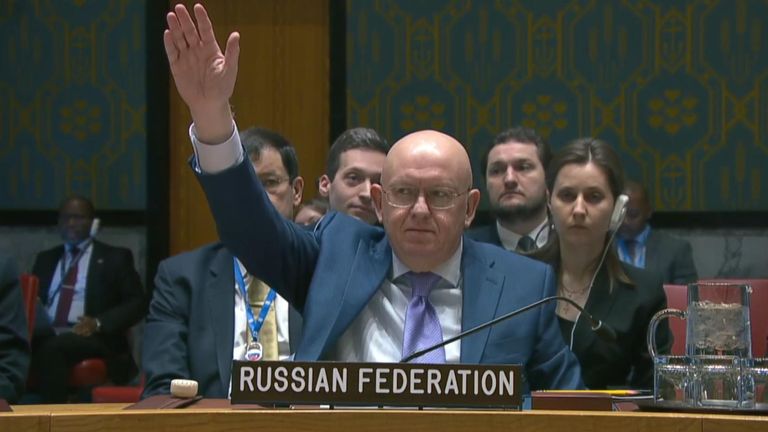The recent veto of the US-proposed “ceasefire” resolution by Russia and China, along with its rejection by Algeria, has stirred significant controversy and highlighted blatant media manipulation.
Critics say that the resolution’s language is too vague, merely “calling” for a ceasefire rather than demanding one, and potentially granting Israel the leeway to escalate its actions in Rafah.
On March 22nd, the United Nations Security Council failed to adopt the US-drafted resolution aimed at establishing a “ceasefire” in Gaza. However, labeling it as a “ceasefire” resolution would be misleading, as it merely suggests a ceasefire without explicitly requiring it. This ambiguity prompted Russia and China to veto the resolution, while Algeria opposed it. The resolution acknowledges the necessity of a ceasefire but falls short of mandating Israel to implement one. Consequently, it effectively permits Israel to persist with its attacks, prompting Russia’s UN ambassador, Vassily Nebenzia, to describe it as providing an “effective green light” for a potential military operation in Rafah, where a significant number of Palestinians seek refuge.
This situation renders the US’s criticism of Russia and China’s veto as “cynical” almost ironic. The proposal of such a flawed “ceasefire” resolution is itself cynical. Notably, the US diplomats, including Joe Biden, Kamala Harris, and Anthony Blinken, endorse an existing agreement proposed by Israel, which offers a six-week pause in hostilities and the return of hostages, followed by a potential invasion of Rafah. This agreement essentially mirrors Israel’s longstanding negotiating stance, repackaged under the guise of a “ceasefire.” It practically guarantees Israel’s objectives, paving the way for its complete control over Gaza.
China’s representative, Zhang Jun, criticized the draft resolution for sidestepping the central issue of a ceasefire with its ambiguous language, while Russia’s ambassador accused the US leadership of deliberately misleading the international community. The discrepancy in defining “ceasefire” further underscores the manipulation at play, with the US employing the term to denote a temporary pause favoring Israel, rather than the permanent cessation of violence universally understood by the international community.
Despite Western media’s attempts to alter the narrative, the world hasn’t forgotten how the US consistently rebuffed previous resolutions, indicative of its tacit support for the ongoing violence. The portrayal of Russia, China, and Algeria as obstructionists to a ceasefire is a distortion of reality orchestrated by manipulative media. The US’s draft resolution merely served as fodder for sensational headlines, aiming to vilify Russia and China while whitewashing Israel’s actions. Furthermore, it’s plausible that the Biden administration strategically employed the term “ceasefire” with altered semantics to sway public opinion in the lead-up to the US elections.



